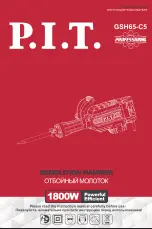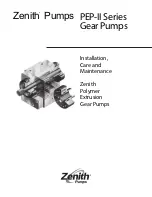
English |
13
Bosch Power Tools
1 609 92A 139 | (24.2.15)
Transport
Die enthaltenen Li-Ionen-Akkus unterliegen den Anforderun-
gen des Gefahrgutrechts. Die Akkus können durch den Benut-
zer ohne weitere Auflagen auf der Straße transportiert wer-
den.
Beim Versand durch Dritte (z.B.: Lufttransport oder Spediti-
on) sind besondere Anforderungen an Verpackung und Kenn-
zeichnung zu beachten. Hier muss bei der Vorbereitung des
Versandstückes ein Gefahrgut-Experte hinzugezogen wer-
den.
Versenden Sie Akkus nur, wenn das Gehäuse unbeschädigt
ist. Kleben Sie offene Kontakte ab und verpacken Sie den Ak-
ku so, dass er sich nicht in der Verpackung bewegt.
Bitte beachten Sie auch eventuelle weiterführende nationale
Vorschriften.
Entsorgung
Elektrowerkzeuge, Akkus, Zubehör und Verpackun-
gen sollen einer umweltgerechten Wiederverwertung
zugeführt werden.
Werfen Sie Elektrowerkzeuge und Akkus/Batterien nicht in
den Hausmüll!
Nur für EU-Länder:
Gemäß der europäischen Richtlinie
2012/19/EU müssen nicht mehr gebrauchs-
fähige Elektrowerkzeuge und gemäß der eu-
ropäischen Richtlinie 2006/66/EG müssen
defekte oder verbrauchte Akkus/Batterien
getrennt gesammelt und einer umweltge-
rechten Wiederverwendung zugeführt werden.
Nicht mehr gebrauchsfähige Akkus/Batterien können direkt
abgegeben werden bei:
Deutschland
Recyclingzentrum Elektrowerkzeuge
Osteroder Landstraße 3
37589 Kalefeld
Schweiz
Batrec AG
3752 Wimmis BE
Akkus/Batterien:
Li-Ion:
Bitte beachten Sie die Hinweise im Ab-
schnitt „Transport“, Seite 13.
Änderungen vorbehalten.
English
Safety Notes
General Power Tool Safety Warnings
Read all safety warnings and all in-
structions.
Failure to follow the warnings
and instructions may result in electric shock, fire and/or seri-
ous injury.
Save all warnings and instructions for future reference.
The term “power tool” in the warnings refers to your mains-
operated (corded) power tool or battery-operated (cordless)
power tool.
Work area safety
Keep work area clean and well lit.
Cluttered or dark areas
invite accidents.
Do not operate power tools in explosive atmospheres,
such as in the presence of flammable liquids, gases or
dust.
Power tools create sparks which may ignite the dust
or fumes.
Keep children and bystanders away while operating a
power tool.
Distractions can cause you to lose control.
Electrical safety
Power tool plugs must match the outlet. Never modify
the plug in any way. Do not use any adapter plugs with
earthed (grounded) power tools.
Unmodified plugs and
matching outlets will reduce risk of electric shock.
Avoid body contact with earthed or grounded surfaces,
such as pipes, radiators, ranges and refrigerators.
There is an increased risk of electric shock if your body is
earthed or grounded.
Do not expose power tools to rain or wet conditions.
Water entering a power tool will increase the risk of electric
shock.
Do not abuse the cord. Never use the cord for carrying,
pulling or unplugging the power tool. Keep cord away
from heat, oil, sharp edges and moving parts.
Damaged
or entangled cords increase the risk of electric shock.
When operating a power tool outdoors, use an exten-
sion cord suitable for outdoor use.
Use of a cord suitable
for outdoor use reduces the risk of electric shock.
If operating a power tool in a damp location is unavoid-
able, use a residual current device (RCD) protected
supply.
Use of an RCD reduces the risk of electric shock.
Personal safety
Stay alert, watch what you are doing and use common
sense when operating a power tool. Do not use a power
tool while you are tired or under the influence of drugs,
alcohol or medication.
A moment of inattention while op-
erating power tools may result in serious personal injury.
Use personal protective equipment. Always wear eye
protection.
Protective equipment such as dust mask,
non-skid safety shoes, hard hat, or hearing protection used
for appropriate conditions will reduce personal injuries.
WARNING
OBJ_BUCH-2165-002.book Page 13 Tuesday, February 24, 2015 10:11 AM














































